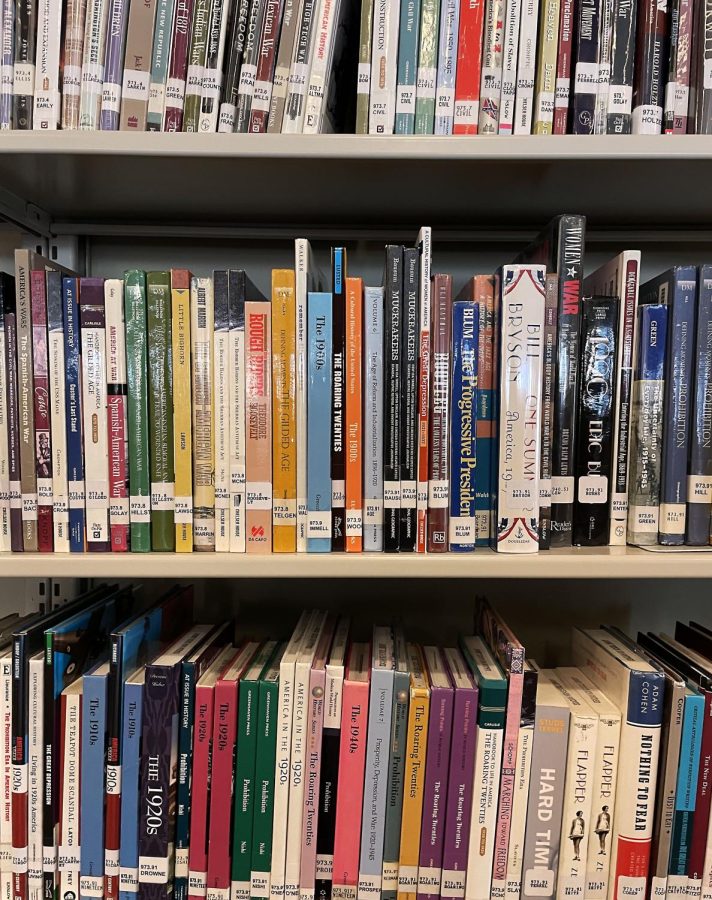The Threats Facing Libraries Today: Will They Withstand?
February 9, 2022
For centuries, society has used libraries as a means of obtaining knowledge and escaping into imaginative worlds. Through them, communities rich and poor have been able to absorb literature that has shaped the way we think, act, and respond to daily life. Reading is one of the most vital skills to a more successful future. However, with the onset of advanced technology and the current pandemic, many believe that libraries are worthless in our modern age. E-books, podcasts, and e-news offer access to information that is easier to obtain than physical books, and people are able to use them without ever setting foot in a library. Additionally, with the implementation of social distancing due to COVID-19, many fear to gather in a library. Are libraries losing their value?
The Washington Post sought out to answer this question and detailed the history of libraries. Ever since they were created, libraries have been a place of power and knowledge; however, their positive influence did not guarantee their protection. Through the Renaissance, French Revolution, World War II, and other momentous events, libraries faced extreme threat. As volumes of books were pulped, stolen, and censored, libraries managed to stay afloat and recover from massive defeat each time. The Washington Post suggests that the battle libraries currently face, a digitally centered society, will not take away the crucial role they play in our modern society. In fact, junior Galen Gomez and senior Hardy Jiang state that they prefer hardcopy books over e-books and kindles. Gomez says that she never uses a kindle for reading and that libraries “get people’s imagination going,” supporting the notion that libraries’ importance will stand firm.
However, the COVID-19 pandemic poses an additional obstacle for libraries worldwide. Like thousands of other businesses, public libraries struggled to stay afloat during the lockdown period. Several traditional activities were strictly prohibited in order to slow the spread of the virus and maintain social distancing within communities. The American Library Association says that the infamous isolation in March of 2020 “required (libraries to) (find) new ways to serve and continue supporting their communities—often at a distance.” However, they go on to state that several libraries “extended online renewal policies, expanded online checkout services, and added virtual programming. Many distributed…free craft supplies and STEAM (science, technology, engineering, arts, and mathematics) kits, supported distance learning, and, significantly, boosted their technology offerings by checking out laptops and Wi-Fi hotspots and extending Wi-Fi to their parking lots.” In response to the challenge posed by the lockdown, public libraries proved their worth by granting individuals with safer, increased access to learning. This time of probation did not upend their standing.
Likewise, when Issaquah High School shut down in March 2020 until April 2021, the library was closed. This crucial change impacted students’ access to books and other important resources. The IHS librarian, Kelly Crickmore says, “I missed having the kids come in to checkout during the pandemic.” However, she states that when school came back in person, “I saw more individual students coming to check out.” With increased leisure time due to longer periods inside, reading became much more favorable to individuals. Gomez says that she read the most “during quarantine for sure.” Similarly, Jiang says,“Quarantine gave me more time to read.” An online news network, The Conversation, supports this idea with an experimental survey they conducted in the UK. In their survey, they studied the pandemic’s effects on reading habits amongst participants. They found that “respondents generally reported that they were reading more than usual…largely due to having more free time.” With so many time-consuming activities halted, people had the choice to sit back and take time to dig their noses in more books than ever before. This increase in dedicated time to reading is a very beneficial habit as Youth Aspiring Magazines suggests,“Studies have shown that reading as few as six minutes per day reduces stress, improves the quality of sleep, and sharpens mental acuity…Reading leads to building stronger relationships and offers a stronger sense of shared understanding. This is because the ability to empathize and engage with diverse stories and people of different backgrounds brings a greater sense of human connection and empathy.” During a time of such division and anxiety, books have offered solace and resort for people throughout the world during a tumultuous time that will be forever remembered in history.
If anything, the overall significance of books has only been strengthened in our modern day. Thus, without access to a public library, many people would not have the opportunity to receive the benefits that books are bringing during such an anxious time. Therefore, the importance of libraries in our world will forever be unmatched, and literature will continue to be a balm of consolation for society as long as we do not forget to turn off our screens and pick up a good book every once in a while.



